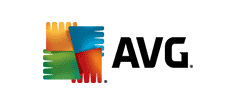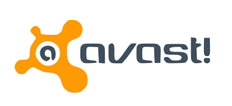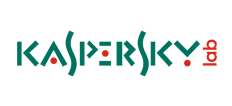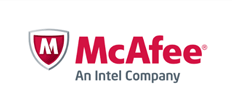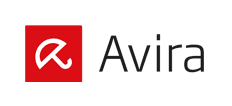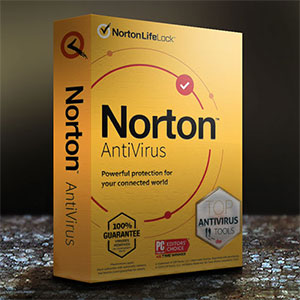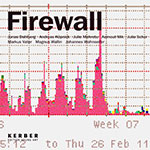There are good and bad virus programmers. The “good” ones are called “White Hats”. Their purpose is to try to detect vulnerabilities and develop programs only to understand them better, but never to share them. But there are also the “bad guys” who use their skills for destructive purposes. They’re called Black Hats.
Martin F. doesn’t see himself as a White Hat or a Black Hat. He doesn’t really want to admit that he’s “a bad guy” who programs viruses to harm other people. He says that being a “bad guy” is an underestimation of his skills.
In fact, Martin F. is one of those illustrious people who can program a dangerous virus. “I’m more of an extremely bad guy,” he says. He is proud of his new virus, which he just finished. “I always wanted to program viruses to show people,” he admits.
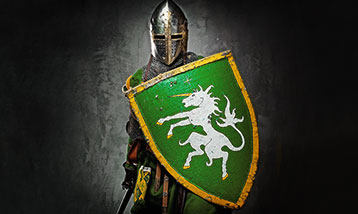
Member of the Cracking Scene
Martin F. is an old member of the so-called Cracking Scene. A hacker subculture that started to remove the copy protection of software back in the 1980s and still exists today. Today, the Cracking Scene is known as the “Release Scene” and has been classified as a “highly organized syndicate” by the FBI since the early 2000.
With his pale blonde hair, sparse, light beard and his glasses, he looks like an 18-year-old teenager. “I am already 30, one of the first ones,” he reveals wholeheartedly.
His 2 bedroom apartment is filled with countless computers and hardware parts all scattered around. A server and several hubs distribute his high-broadband internet line to other networked computers around the whole apartment. He still keeps two old Commodore Amiga 500s and a Commodore 64: “I would never sell those things.”
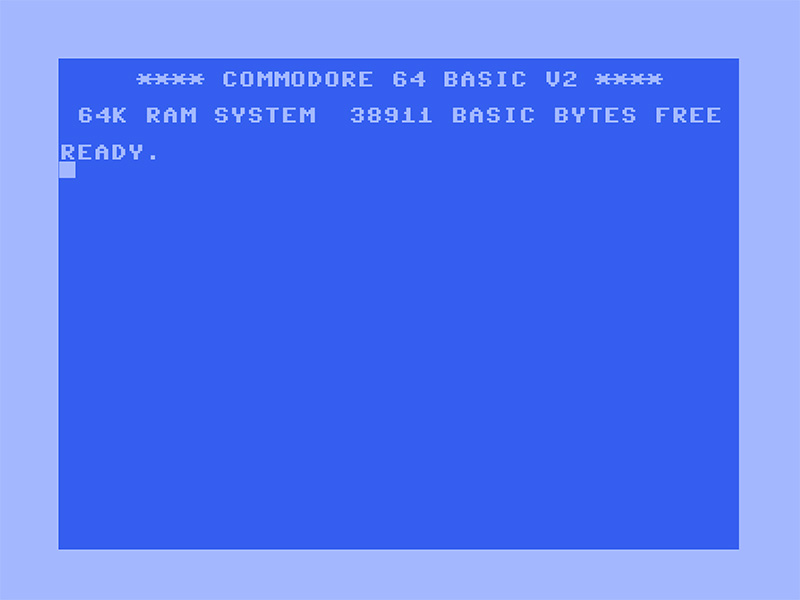
Start screen of the vintage Commodore 64 computer
Apartment
There is no smart phone in the entire apartment, despite the prevalent high-tech.
His only phone communication device is an old cell phone, which he carries with him. He also carries around his linux laptop wherever he goes, and is always connected to “the net”. Two flat-panel monitors are connected to his main computer at the same time: “Standard equipment.” Other computers are running 24h a day and show logs of IP traffic, and other information showing the flow of information on several networks he’s managing. He has no time for a girlfriend. Most of his friends are his “chat friends” — hackers he’s in touch with but never saw in person.
Programming Languages ??are a Piece of Cake
He used to work with the assembler programming language: the so-called “machine language” is a programming language at the highest level. “Today they even call HTML or PHP a programming language, that’s for children,” he sneers.
At the age of twelve he had his first contact with the legendary Cracking Scene. The first cracking groups were formed in the 80s, which called themselves “the scene”. “We cracked countless software.” The cracking group, which Martin belonged to, had only one goal: to remove the copy protection of software and share it with other groups. However, this way, the pirated copy of software was distributed around the world within a few days. Of course, only companies that had copy-protected software were cracked and distributed by “the scene”. It’s hard to believe, but the intention of the cracking groups were not monetary, but just a hobby. It was more like a challenge to revolve a puzzle to prove that nothing is uncrackable. Ironically, these software companies which software were cracked and distributed by the cracking groups, are one of best known and strongest companies in the world today. Maybe it was the piracy distribution that gave these companies a well-known name.

When Martin is asked if they wanted to harm the software companies, he has no answer. “We just cracked because it was fun. Maybe we even told ourselves they deserved it.”
The goal of a software cracker was to spread a cracked software as quickly as possible under their own group name to get fame among other scene groups. “Respect was very important in the scene.”
It’s About Respect
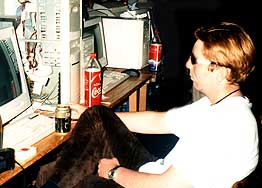
Martin back in the days cracking software
But these days are over for Martin F. Cracking software does not satisfy him anymore. “There are now so many cracking groups, that’s not challenging”
Martin is a contractor for one of the large and known software companies. You wouldn’t guess that a guy like him would be programming viruses in his spare time as a hobby. It’s maybe the fact that he’s not getting the necessary respect by the work he’s conducting for his company. He admits himself, that it’s the respect part in the cracking scene that gave him the most satisfaction. And respect is something that is still important to him today, even he remains anonymous when he releases viruses into the world.
It’s good enough for him to put things in motion, even nobody knows who he is are, and he’s solely observing his actions are causing. Whether Martin wants to part with his extremely well-paid job is not up for discussion. Life is still too comfortable for him, because “the pay is great.” When it comes to virus programming, Martin has no specific objectives. “I just program it for fun.” Political motivation, especially with regards to current events, is of no interest for him.
Double Life
When the phone rings and the job logs in, Martin is serious and eloquent. With trusting instructions he knows how to say the right things on the phone and has an immediate solution. “One is my job, the other is more of a gameplay.”
Martin does not want to admit that his virus programming hobby might be an escape from his dissatisfaction. Playing around with viruses, however, has to be taken seriously in today’s society considering its political and economical impact. Entire systems are affected, businesses and individuals face tremendous data loss and damages. When law enforcement catches virus programmers, they mostly face unsympathetic district attorneys. The penalties today are much harder than they used to be. But those are not the things that worry Martin. Maybe it’s a kind of frustration with the new information society. Wau Holland, the former president of the Chaos Computer Club, had already drawn attention to the problems of the information society. Above all, social loneliness and lack of recognition are motivating factors for many attacks by hackers. Martin’s attitude towards life seems to match the car like chalk and cheese.
Missing the Challenge
During the conversations one notices that Martin feels under-challenged in this computerized society as a former computer hacker. He always has to argue with some stupid non tech-savvy people who don’t know what they’re doing, as he claims.
“Because they do not understand a damn about technology” he complains when he talks about his work. He regularly has to repair man-made system errors, control and maintain faulty and badly programmed systems. As Martin says, his job is more likely to be described as “nurse for people who crap code”. “Back in the days,” he says wistfully, “everything was different.”
A computer geek, or “scener,” as scene members used to call themselves, they felt like the elite—”freaks among themselves”, one could almost say—a kind of club where the skills and fascination was not understood by society, but within their own subculture, they completed each other perfectly. “You were respected in your group because the members appreciated each other’s skills. This was not about criminal energy, but the fun and the company of other people like yourself. You did not crack software for commercial purposes, but just to show that you were able to do it. It was a kind of a race between the copy protection programmer and the cracker. We cracked everything. Even the most useless software that nobody would buy, we cracked and shared them.”
The first Computer Virus
Also, the Cracking Scene, today known as the “Release Scene” Scene did not program viruses for the purpose of damaging other systems.
The first virus ever programmed was called the SCA virus on the Commodore Amiga in the mid 80s. It only caused confusion by displaying the message” Something wonderful has happened, your Amiga is alive.” Other viruses made the system clock run backwards or made strange symbols run across the screen.
Martin has no contact with his old scene buddies, anymore. Everyone seems to have taken a different path, he says. When Martin talks about it, he makes the impression of a desperate fighter who has lost his tribe—almost like a Ronin—a samurai without a master drifting across the country, evolved in dubious actions to make a living. “Who knows,” he says thoughtfully, “one day I might write a program that is useful.”



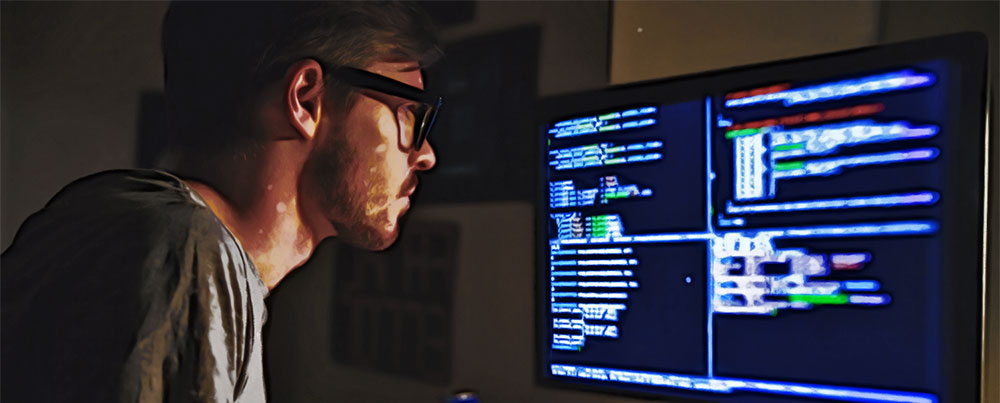
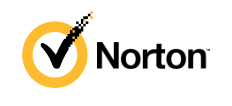
 5.0
5.0 
